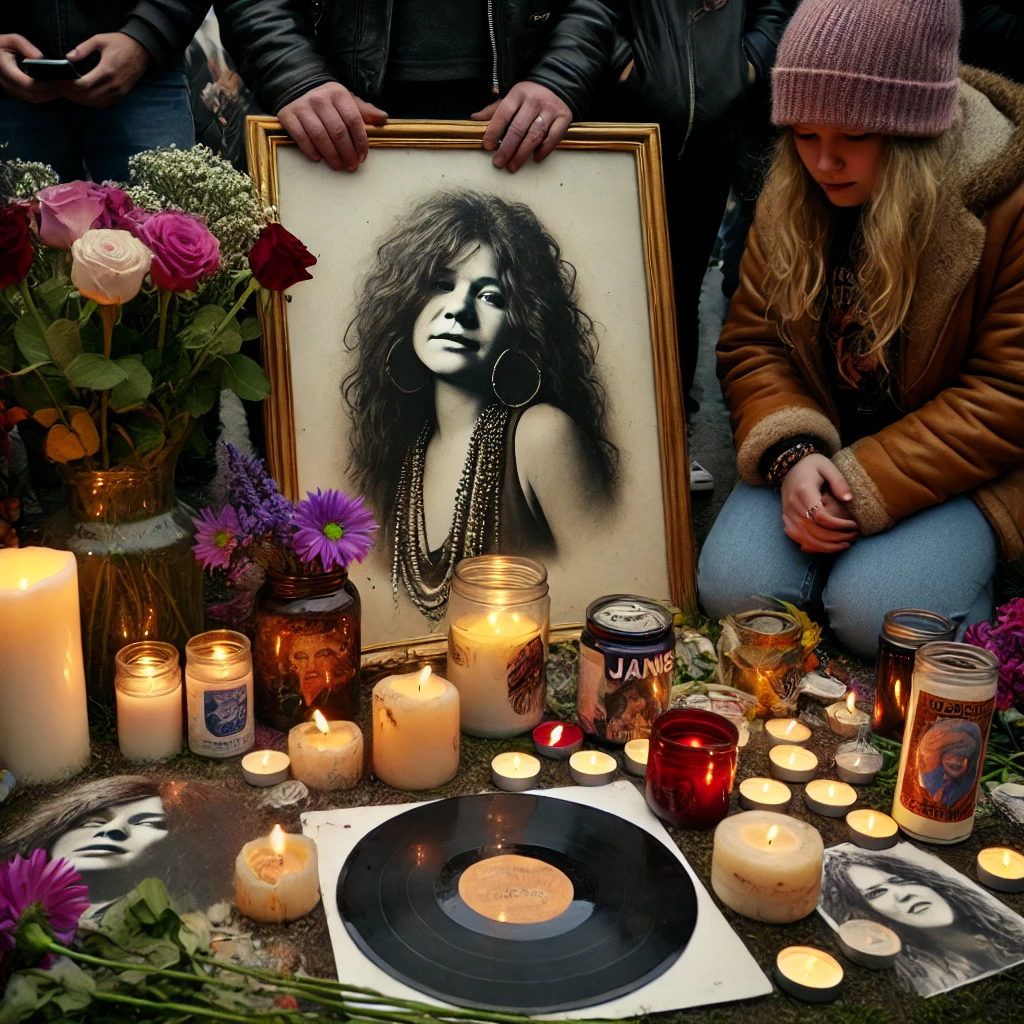On October 4, 1970, the music world mourned the loss of one of its most iconic figures, Janis Joplin, who died from an accidental heroin overdose at the young age of 27. Known for her powerful voice and fierce, uninhibited stage presence, Joplin left an indelible mark on the rock and blues genres, influencing countless artists and redefining the boundaries of female musicianship. Her untimely death not only cut short a remarkable career but also highlighted the darker realities of fame and substance abuse in the music industry.

The Rise of a Rock Legend
Janis Joplin burst onto the music scene in the late 1960s, captivating audiences with her raw emotional intensity and distinctive vocal style. She first gained national attention as the lead singer of the San Francisco-based band Big Brother and the Holding Company, whose performance at the Monterey Pop Festival in 1967 showcased her extraordinary talent. Songs like “Piece of My Heart” and “Summertime” became anthems of the era, solidifying her status as a rock icon.
Joplin’s music resonated with the counterculture movement, embodying the spirit of freedom, rebellion, and authenticity. Her willingness to express vulnerability and pain in her lyrics endeared her to fans, making her a symbol of female empowerment in a male-dominated industry. However, Joplin’s rise to fame was accompanied by personal struggles, including battles with addiction and the pressures of celebrity life.

The Circumstances of Her Death
On the evening of October 4, 1970, Joplin was found dead in her hotel room in Los Angeles. The coroner’s report revealed that she had died from an accidental heroin overdose, exacerbated by alcohol. The news of her passing sent shockwaves through the music community and her legions of fans, who were devastated by the loss of such a talented and vibrant artist.
Joplin’s death was emblematic of the challenges faced by many artists during the tumultuous 1960s and 1970s. The pressures of fame, coupled with the prevalent culture of drug use, created a dangerous environment for many musicians. Her untimely demise served as a grim reminder of the potential consequences of addiction, sparking conversations about mental health and substance abuse within the music industry.
The Legacy of Janis Joplin
Despite her tragic end, Janis Joplin’s impact on music and culture endures. Her powerful voice and unique style continue to inspire generations of musicians across various genres, from rock and blues to pop and country. Artists such as Melissa Etheridge, Alanis Morissette, and Beyoncé have cited Joplin as a major influence, showcasing her lasting legacy in contemporary music.

In addition to her musical contributions, Joplin became a symbol of the struggle for authenticity and self-expression in a society that often sought to impose conformity. Her willingness to embrace her individuality and speak candidly about her experiences resonated deeply with fans, cementing her status as a cultural icon.
Remembering Janis
Janis Joplin’s life and career are often commemorated through various tributes, including documentaries, biopics, and annual music festivals celebrating her work. The 1979 film The Rose, inspired by her life, further immortalized her story, reflecting the complexities of fame and the pursuit of artistic expression. Her legacy is also preserved through music, with collections of her work continuing to be released, allowing new audiences to discover her powerful performances. Songs like “Me and Bobby McGee” and “Cry Baby” remain staples in the music canon, showcasing her vocal prowess and emotional depth.
The tragic death of Janis Joplin on October 4, 1970, marked the loss of a groundbreaking artist whose influence continues to resonate in the music industry today. Her fierce spirit, coupled with her struggles, serves as a poignant reminder of the complexities of fame and the realities of addiction. As we remember Joplin, we celebrate her contributions to music and culture, recognizing the enduring legacy of a woman who dared to be herself and whose voice will forever echo in the hearts of fans around the world.
